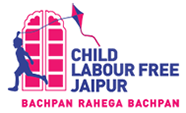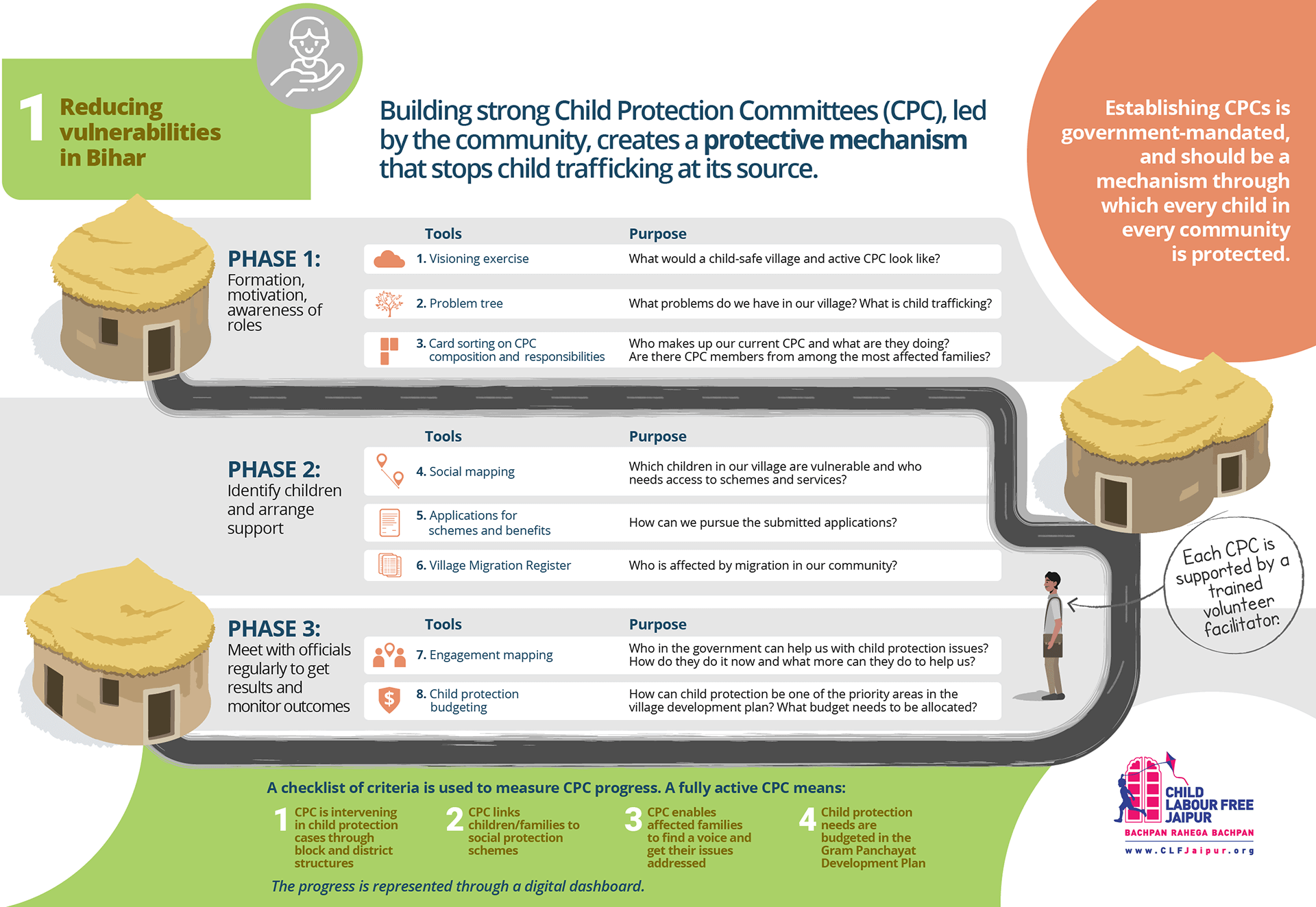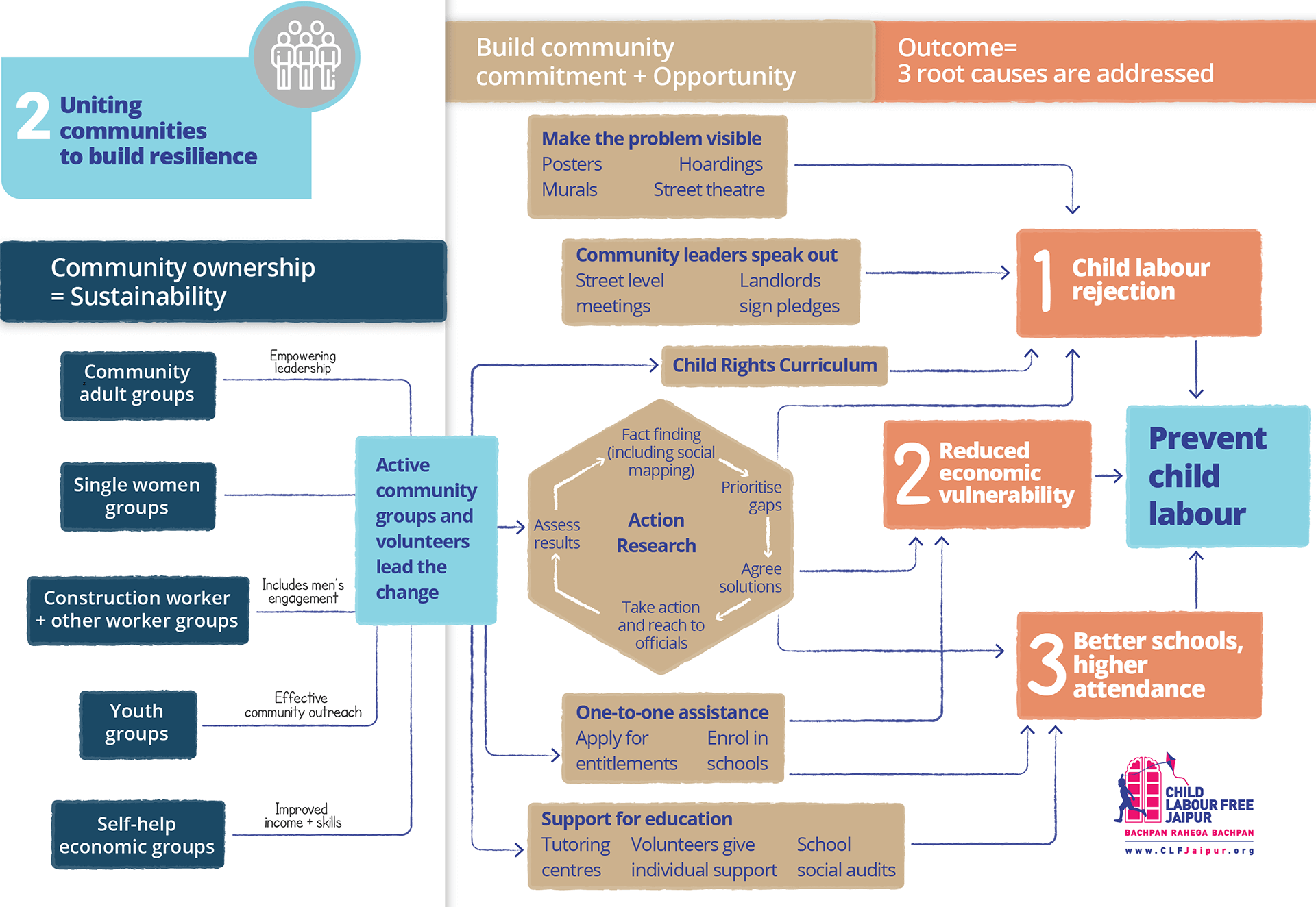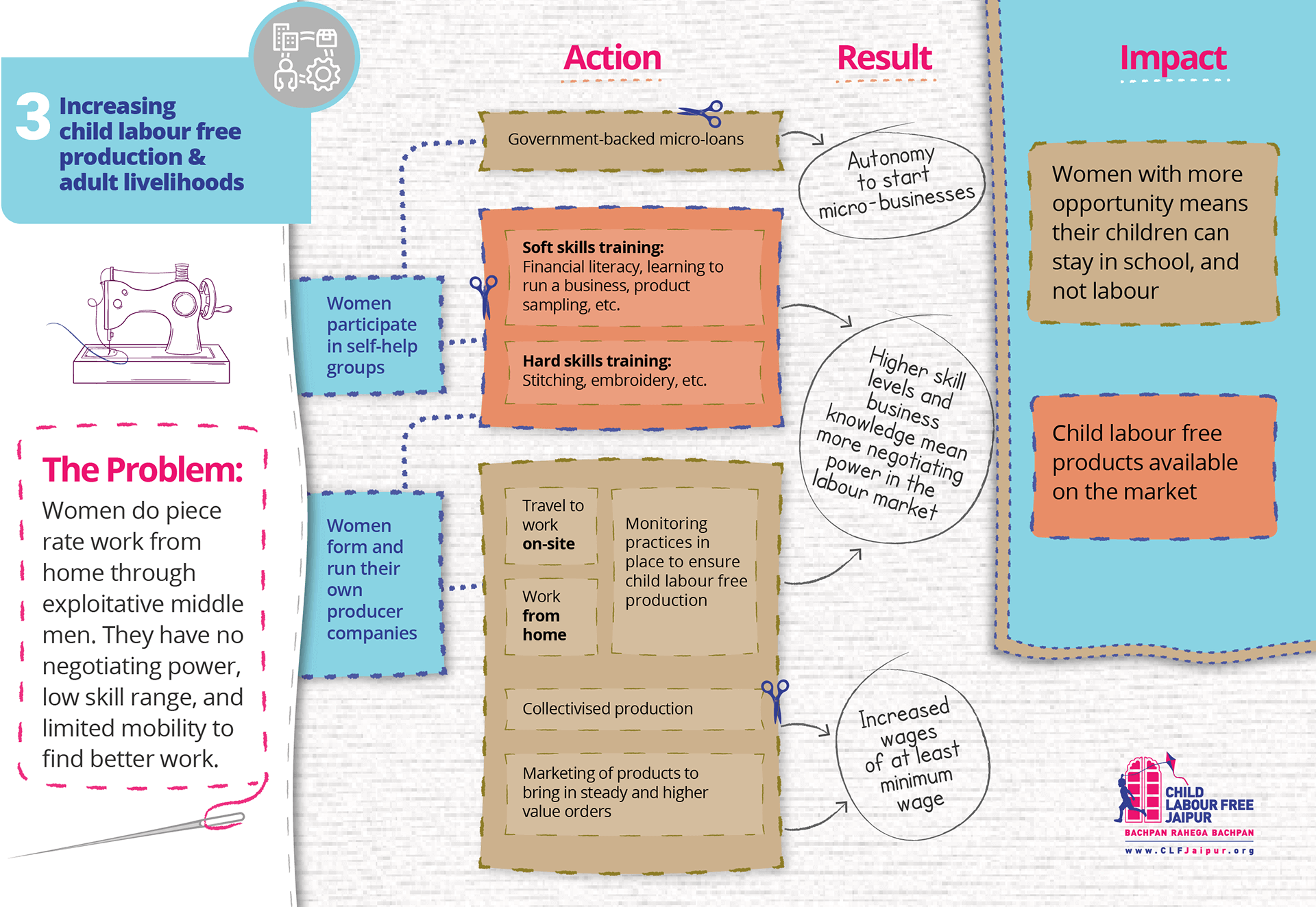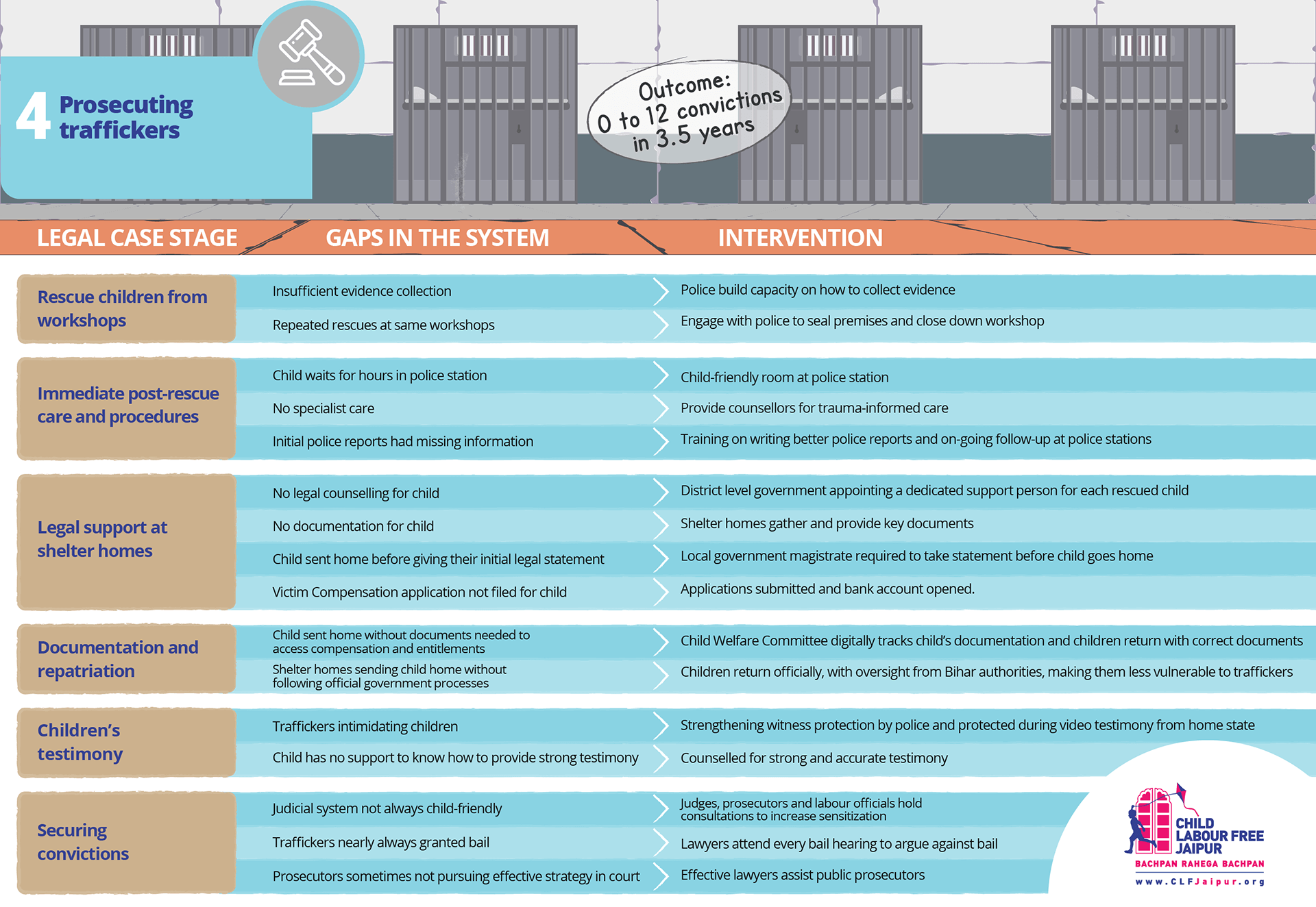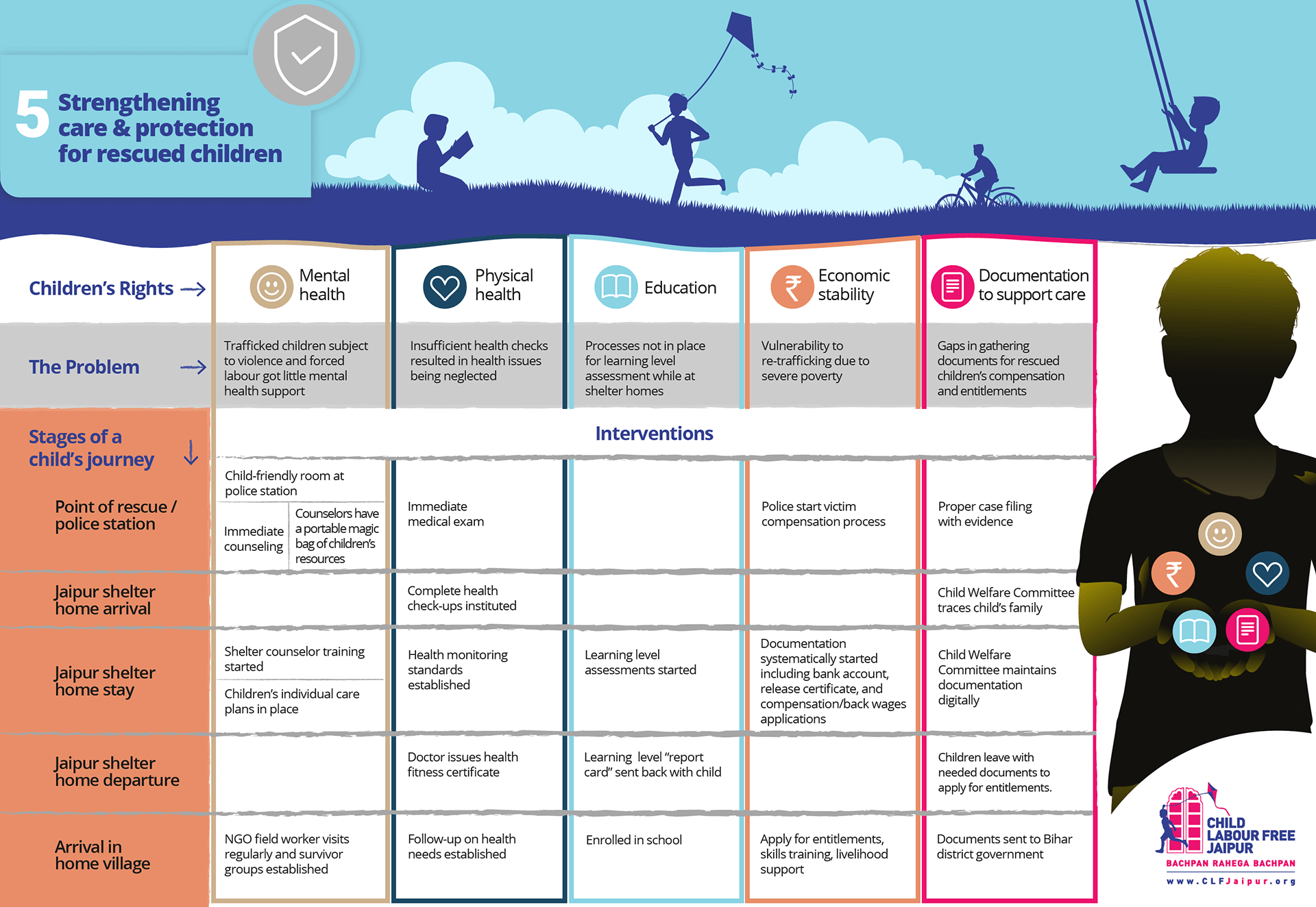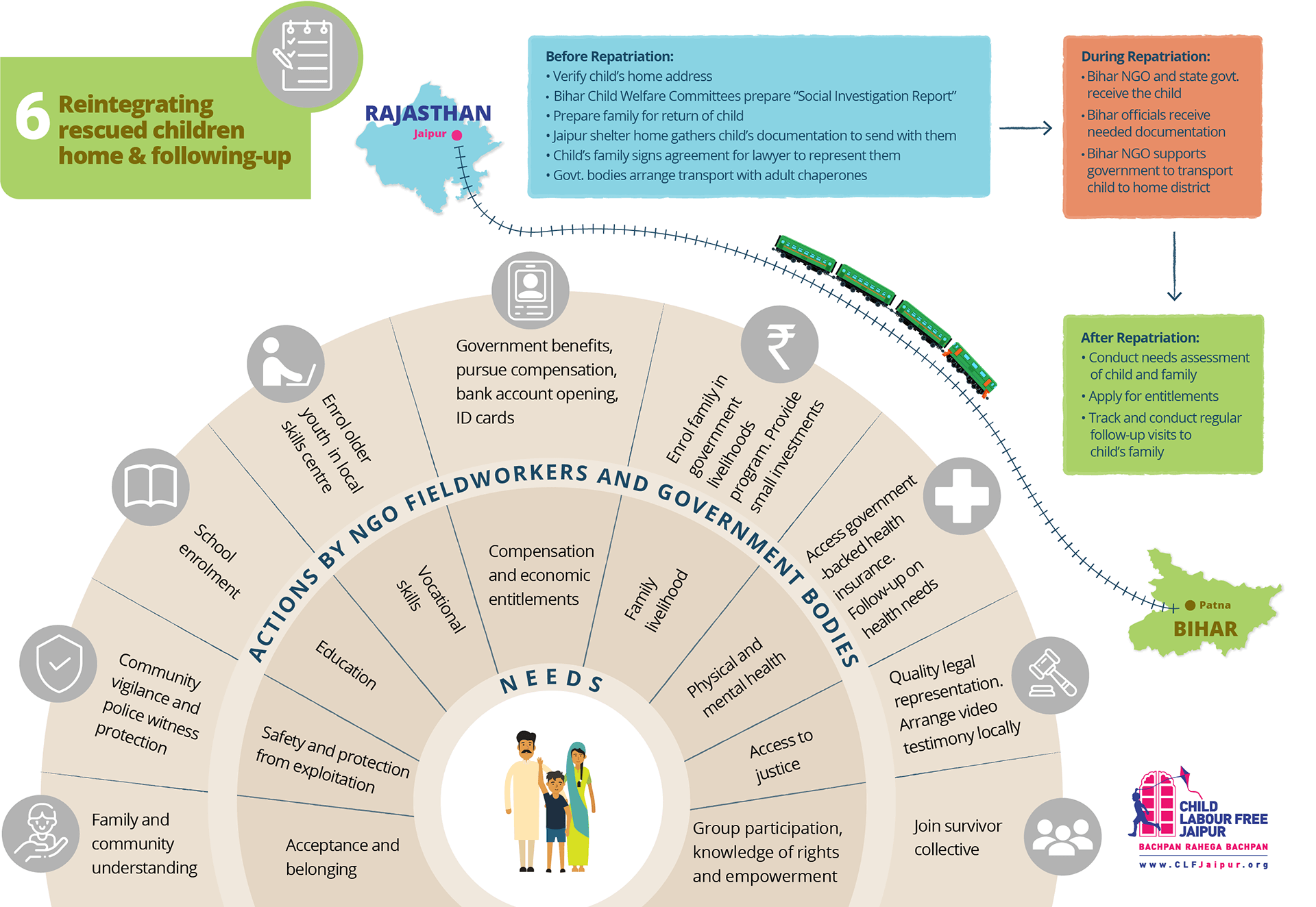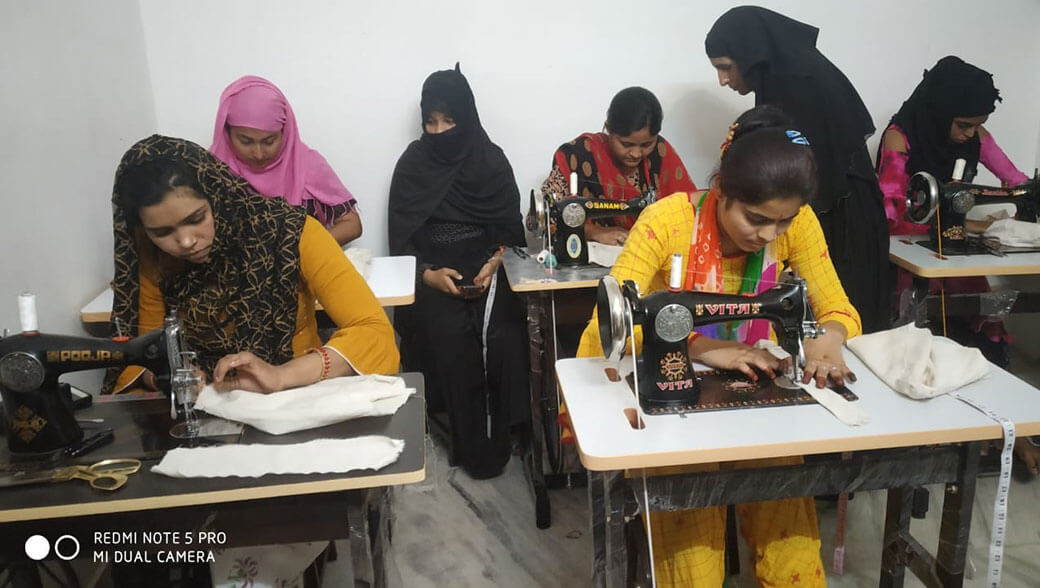Photograph: Sharmistha for C&A Foundation 2018
Our Work
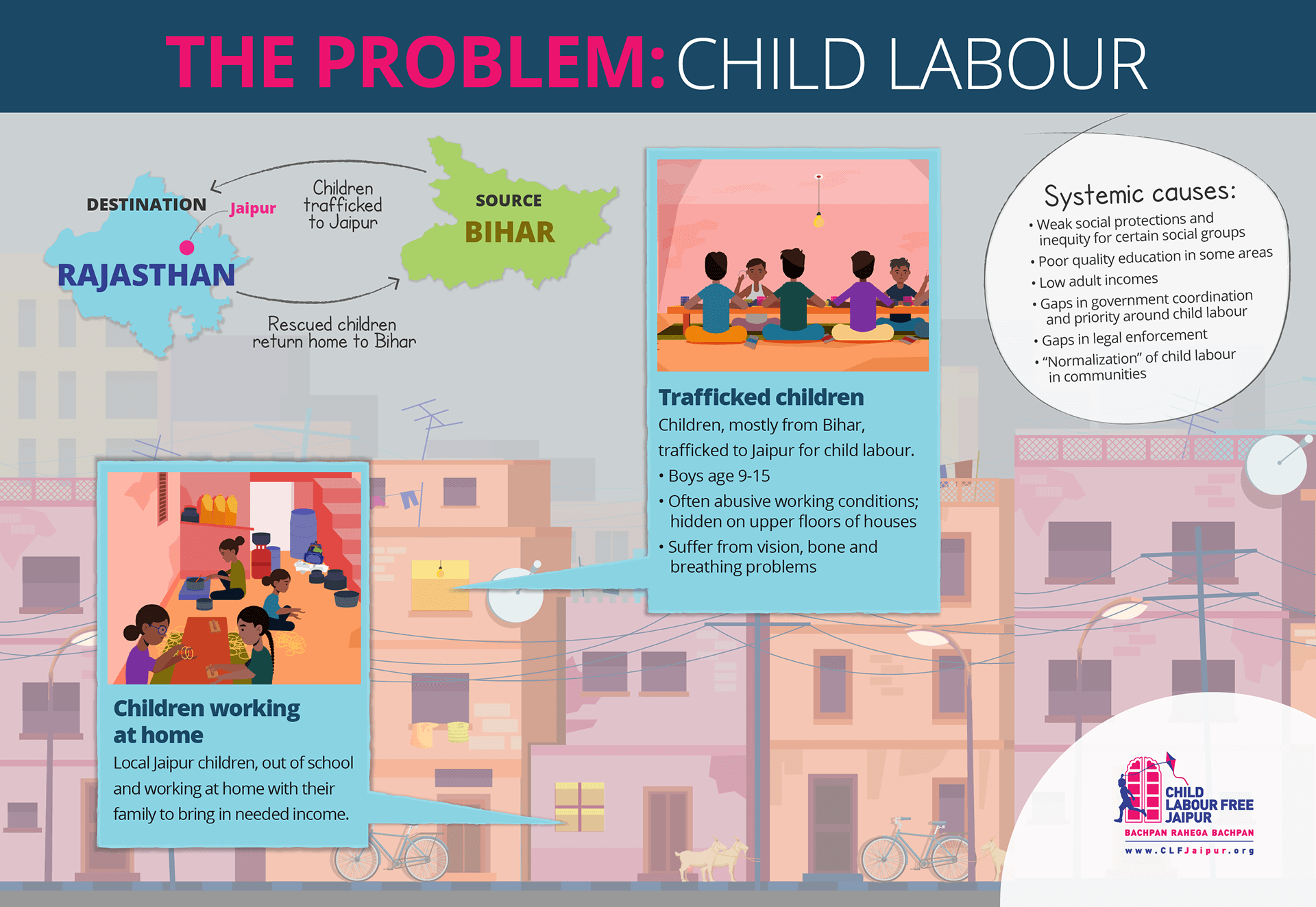
Since 2018, Child Labour Free Jaipur has been intervening at multiple points in the web of events that lead to child labour in workshops, including robust, on-the-ground work by a network of 12 grassroots organisations in source districts in Bihar and destination neighbourhoods in Jaipur. Since large numbers of exploited children are also from local families, CLFJ’s neighbourhood-based strategies are vital to ending child labour. Below is our model.
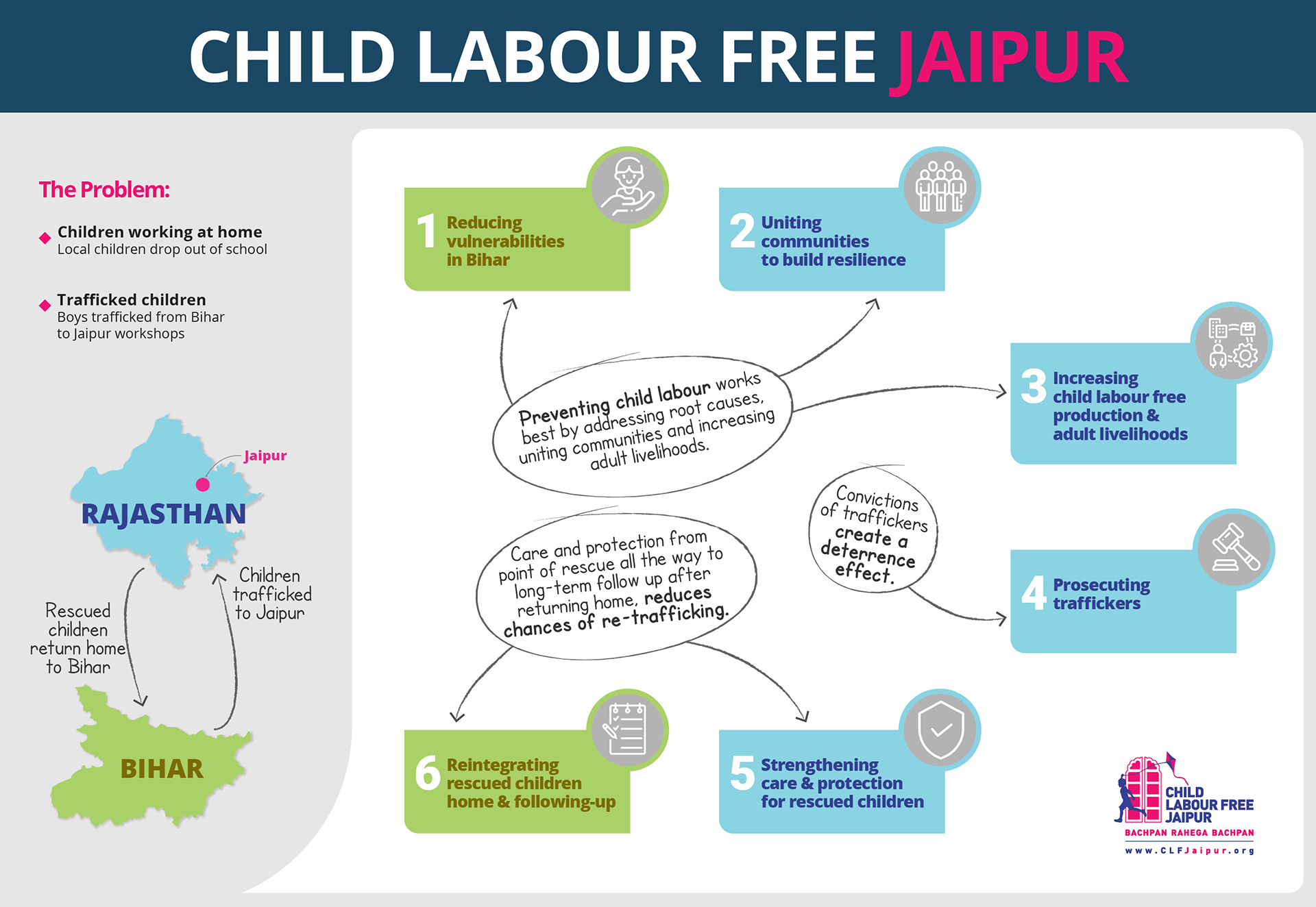
1
Reducing Vulnerabilities in Bihar
Child Protection Committees are government-mandated bodies designed to ensure that every child in every village is protected. CLFJ is helping to strengthen these committees in districts in Bihar, and they are measuring their progress towards functionality through benchmarks. A digital dashboard helps the local government to see the progress in different areas so that efforts can be concentrated where they are needed most. Strengthening existing government frameworks allows for systemic change that can continue for the long-term. Groups of young trafficking survivors are also working for better protections for all young people at risk.
2
Uniting Communities to Build Resilience
In Jaipur, CLFJ is supporting communities to build commitment against child labour. Local residents and community leaders consider together the harms caused by child labour and how to keep children in school. Through community centres and volunteers, families get support for education as well as government entitlements that enhance their income. With increased community commitment, schools improvement and economic opportunity, CLFJ addresses root causes in ways that are owned by the communities, ultimately leading to sustainability.
3
Increasing Child Labour Free Production and Adult Livelihoods
Many businesses and associations have already pledged their support to fight against child labour – thereby incentivising other businesses to do the same. By changing business dynamics to shift away from child labour, we can reduce demand. Hundreds of women in CLFJ neighbourhoods are working together to run their own Producer Companies, which allows them to earn minimum wage and send their children to school. Women are participating in collectivised, child-labour free production and getting progressively trained in hard and soft skills, giving them more negotiating power in the market. CLFJ is supporting the expansion of this model in these neighbourhoods.
4
Prosecuting Traffickers
Child labour in workshops is usually the result of traffickers luring vulnerable families with the promise of a better life for their children. CLFJ is working with the Rajasthan and Bihar governments to help them close the gaps that were preventing successful prosecutions. CLFJ is working closely with law enforcement, judiciary, prosecutors and other child protection stakeholders so that cases have better evidence, stronger testimony, and real consequences for child traffickers.
5
Strengthening Care & Protection for Rescued Children
Through the Rajasthan government’s adoption of a digital documentation system, rescued children are now better tracked and getting better care. They return home with the documents they need to apply for compensation and entitlements. Through a counselling network, learning level assessments, and regular health checks, children’s mental, physical and educational needs are being better met.
6
Reintegrating Rescued Children and Following-up in home villages
After children are rescued from workshops, they stay at temporary shelter homes. Together with the Child Welfare Committee and Department for Child Rights, CLFJ helps them to return to their homes in Bihar, where most of the trafficked children come from. If children are simply rescued and returned home, there is a high likelihood they will be re-trafficked. So, CLFJ works with several local organisations in districts in Bihar, where hundreds of children are returning, to support school enrolment, and help them to apply for compensation and government benefits, to economically stabilise these families.
